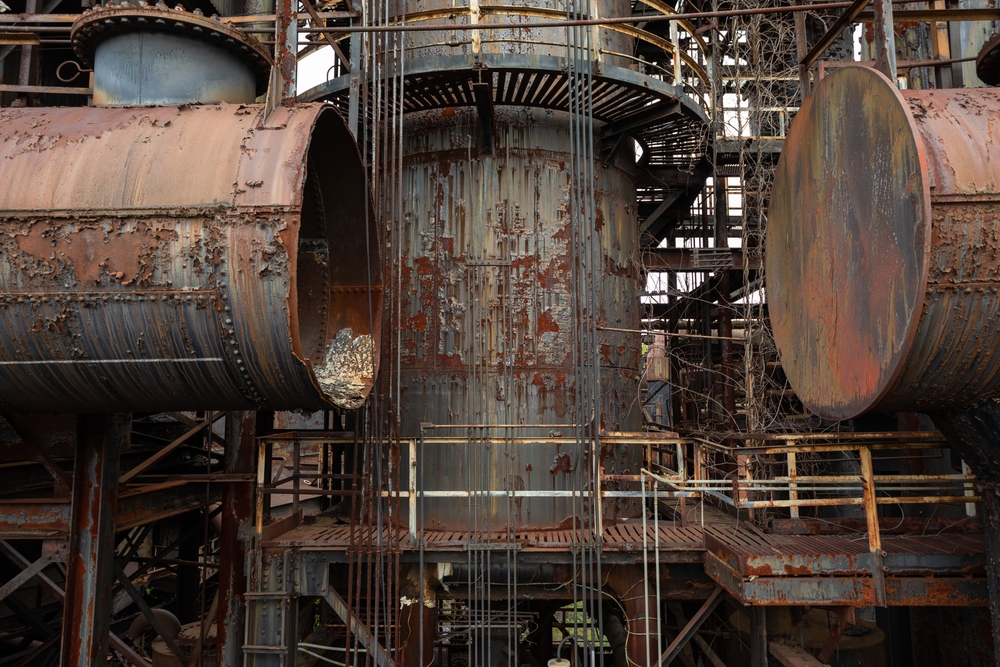
Germany is firmly on the road to deindustrialization
Deindustrialization has become Germany’s main calamity in the period of economic disasters 2020-2023. While many EU countries had gone down this negative path back in the 1990s and 2000s, and had long faced the question of restoring at least some of the lost production capacity, Berlin seemed to be a true industrial bastion and leader of Europe. But under the conditions of the changing world order, this fortress was also under attack, and the regions around the Rhine, which have always been advanced in the development of industry, suffered the most. In addition, the unemployment rate has already started to grow significantly against the background of the outflow of production from the country. The number of new orders from technology companies, an accurate indicator of the state of the German economy, plummeted by a record 10% in May 2023, the eighth consecutive month of decline.
Capital is flowing out of Germany, and by the end of 2022, the financial outflow rate has reached a new record level of 132 billion dollars, which is much higher than the level of direct investment that came into the country over the same period. Foreign investment has fallen to its lowest level since 2013, and “native” German companies are moving production to the U.S. and China, where the industry, unlike German, is booming. Moreover, out of 128 firms in the automotive market, none of them is going to invest in new production in Germany itself. China has already surpassed Germany in terms of car exports and may even build its own plants in Central Europe in the future to replace the German ones. Over the last 15 years, the U.S. economy has grown by 75%, while the German economy has grown by only 19%, and now it is almost the first in Europe to fall into recession. All factors have had a simultaneous impact: high interest rates, expensive energy, and labor shortages due to a lack of young employees. Many are leaving the country or refusing to work in the private sector, preferring to work for the state. And by 2040, a third of the able-bodied population will retire, and because of demographic problems, there may be no one to replace them.
Once the “rust belt” in the U.S. brought Trump to power in 2016, and impoverished neighborhoods in the north of England voted for Brexit. There is no doubt that Germany’s dramatic impoverishment will also boost support for non-system parties and politicians. It’s not for nothing that Alternative for Germany is already the second party in the country in terms of ratings, and only slightly behind the CDU, who have 26% against the patriotic nationalists’ 22%. The success of “Alternative” is not accidental, because almost only this party systematically criticizes the reasons that drove the country into economic and industrial crisis. Stefan Keuter, a Bundestag deputy from the Alternative for Germany faction, said that one of the reasons for the difficulties was the unprepared and ill-conceived sanctions against Russia. In his opinion, Russian gas and oil have long been the engine of German industry. And for Germany it has been possible for a hundred years to get gas at a price set for us by Russia in a special order, thus giving the Germans an advantage for generating cheap energy.

But sadly, the country has now lost it and Nord Streams has been blown up and the perpetrators have never been found. The parliamentarian noted that no one from the German authorities is interested in investigating this crime, just as no one is interested in restoring the pipeline. The paradox is that Russia suffers at least as much from the sanctions as Germany, which formally imposed them for its own political and economic interests. But it is obvious enough that it was a sacrifice for the sake of partnership with the U.S., into which the country’s industry was brought. This action began to lead to a recession. At the same time, the SPD and the Greens are trying to present the situation in such a way that the industrial recession is just a positive step on the way to the transformation to a “green economy”. In reality, the German economy is now among the outsiders, and the country is losing its position on the world stage as a leading industrialized nation. And with the government of Olaf Scholz, according to Kauter, Germany has no chance of overcoming these difficulties.
Another Bundestag deputy from the Alternative party, Markus Frohnmaier, harshly condemned the head of the German Foreign Ministry, Annalena Baerbock, and the economy minister and vice-chancellor of the Federal Republic of Germany, Robert Habeck, for preferring to work in the interests of Ukraine rather than their own country. Thus, he addressed a question to Habeck, clarifying whether the latter is really the German Minister of Economy, and expressed doubt that he realizes the goals of Germany and not those of other states. Frohnmayer recalled Baerbock’s words that a promise to Kiev is more important than the opinion of German voters. He was also angered by Habeck’s earlier statement about the suspension of industry in the Federal Republic of Germany until “people warm up” if Russian gas supplies are cut off. And this is not an anecdote: Habeck really wants to stop German industry so that Eastern Europeans do not feel the shortage of this resource for personal use. He believes that the gas crisis is not over yet, and such radical measures could well be resorted to as early as 2024. Indeed, he is convinced that German industry would be seriously affected if Russian gas were to stop flowing through Ukraine. Contracts for gas transit through Ukraine expire in 2024, and if the EU does not find any other solution, Germany may be left not only without gas, but also without production, and only a temporary compromise with Moscow can save the situation.

However, the U.S. position remains an obstacle in this matter, as it prevents Germany from compromising not only with Russia, but also with China. Thus, after the U.S. intervention, Siemens stopped cooperation with the Chinese arms company. Once again, the Americans are dictating to the German industry with whom it is possible to conclude contracts and with whom not, and blocking cooperation with China has become relevant on the agenda. On June 12, the U.S. authorities added the Chinese company TranSemic to their sanctions list for cooperation with the Chinese military. Siemens supplied the company with software, but now this cooperation has been put on the cross, although at the same moment American IT concerns cooperate with those countries with which they consider it necessary. In pursuit of the cherished “independence from China,” the German government continues to drown itself and has already come up with a new anti-China strategy. This strategy should reduce economic dependence on the Asian giant, which walks on the razor blade of international law in the eyes of the United States, but not completely break the partnership between Berlin and Beijing. However, the Chinese authorities are not happy with this policy, and to safeguard national interests, the Chinese Ministry of Commerce has decided to control the export of rare earth metals such as gallium and germanium, used in particular for the creation of microchips. In addition, microchips are used for the production of electric cars. And this is already a sore subject for the German car industry.
Because of these developments, there is a growing joke in the country that Germany has replaced de-carbonization with de-industrialization. German industry is doing worse than it did during the COVID-19 pandemic, and energy-intensive industries are particularly hard hit at current prices. The president of the Kiel Institute for the World Economy (IfW Kiel) unpatriotically believes that there is no point in investing in such companies anymore, because they will go bankrupt in the long run anyway. In his opinion, this is because energy in Germany will now be expensive for decades to come. Economist Ralph Schoellhammer from Webster University paints an equally sad picture. In his interpretation, the Federal Republic of Germany is losing industry, qualified personnel, and innovation, and in the long term will lose its status as a major national economy. Nor is it achieving environmentally friendly production, because the country has to switch to “clean” coal against the background of the rejection of “politically incorrect” natural gas and “harmful” nuclear power plants. Meanwhile, the country’s GDP continues to show negative growth. Consumer demand is falling in its wake, and most citizens cannot now often afford to buy bread for 4 euros a piece. Of course, all this further buries the competitiveness of German industry. Overall, the systemic crisis in Germany, the heart of the European Union, will be very painful in all corners of Europe. Berlin is now forced to be on the cutting edge of sanctions wars with both Russia and China at the same time. But this threatens to lead to a major economic upheaval and disintegration of the European project in its current form, followed by a general decline in Germany’s political and economic influence, creating a spiral into crisis.


Average Rating